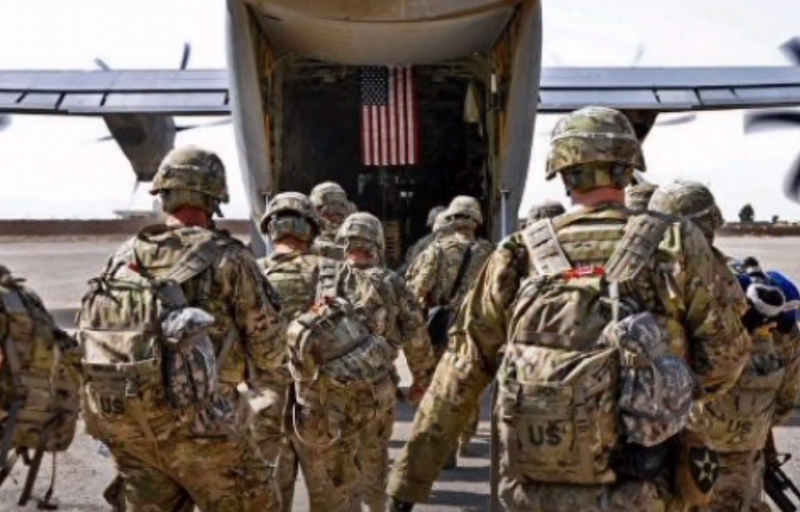The Fall of Kabul: Don’t Panic
(Japan) on 27 August 2021
by Jun Sakurada (link to original)
On Aug. 15, the Taliban Islamic fundamentalist group took control of the Afghan capital, Kabul, and President Ashraf Ghani’s government was driven to collapse.
The “fall of Kabul” brought forth a scene reminiscent of the “fall of Saigon” in the closing days of the Vietnam War.
Twenty years of American effort to establish a democratic government in Afghanistan, which began with the launch of “Operation Enduring Freedom” in the aftermath of the 9/11 attacks and the resulting overthrow of the Taliban government, have gone up in smoke.
At this point, the critical concern is how the new Taliban government will administer the country. Will they govern in a different manner than they did before the 9/11 attacks?
Faced with the fall of Kabul, I was reminded of a saying from 19th century American history: “But she [America] goes not abroad, in search of monsters to destroy. She is the well-wisher to the freedom and independence of all. She is the champion and vindicator only of her own.”
This is a passage from a speech given by John Quincy Adams in 1821, while he was serving as secretary of state in President James Monroe’s administration.
Defend and Maintain 'One’s Own Good Customs'
The line of thought present in Adams’ words was carried on in the 20th century by George F. Kennan, the man who devised the “containment” policy to counter the Soviet Union’s influence at the start of the Cold War. According to Kennan, the purpose of containment was not to destroy the “monster” of Soviet communism, but to hold back the advance of that ideology by defending and maintaining America's “own good customs” of freedom and democracy.
The America of the past 20 years, on the other hand, immersed itself in the war on terror, a clear example of going abroad to destroy “monsters,” marking a sharp contrast with Adams’ and Kennan’s thinking.
The fall of Kabul may long be offered as an example of the failure of America’s 21st century foreign policy.
In the first place, however, democracy, freedom and their accompanying values are plants that grow only in civilizations and societies with an appropriate soil. The only thing that the fall of Kabul demonstrates is the fact that that soil was not present in Afghanistan.
Thus, if the fall of Kabul is taken as an opportunity to revert to a foreign policy based on the Adams-Kennan understanding, there is still hope. That hope is that American foreign policy will be freed from the idea that, along with destroying the monsters that threaten the plant of democracy, it is also possible to transplant that democracy into countries without the appropriate soil.
Regardless of just how badly the human rights situation in Afghanistan deteriorates, as long as it does not affect their own security, the Americans will no doubt take the path of observing silently with gritted teeth. Now, when the 9/11 attacks have faded into the distant past, even if America does issue words of concern about the human rights situation in the country, it is unlikely that it will once again rush to destroy the “monster” that is the Taliban.
Meanwhile, if we follow Adams’ and Kennan’s line of thinking about defending and maintaining one’s own good customs, in addition to accepting the idea that the plant of democracy will only flourish in countries with an appropriate soil, it will still be necessary to thoroughly protect the position of those countries where democracy has taken root.
In fact, as demonstrated by an Aug. 16 editorial that appeared in the Chinese Communist Party's Global Times, America's conduct prior to the fall of Kabul has led to the spread of narratives such as: "In the end, when it became inconvenient to provide further assistance, America abandoned Afghanistan. Indeed, Taiwan and even Japan may find themselves abandoned when the going gets tough."
This Was Not a Loss for Democratic Values
The Western world, including America and Japan, must be wary of this sort of narrative, which raises doubts about the credibility of America’s participation on the global stage, and fight against its dissemination.
While the fall of Kabul may be one setback within the grander scheme of American foreign policy, it does not signal defeat for the values of freedom, democracy, the rule of law and human rights.
Japan has incorporated respect for these values into its own good customs. What is once again being asked of Japan is whether it will be able to successfully engage in a foreign policy based on the principle of defending and maintaining them.

